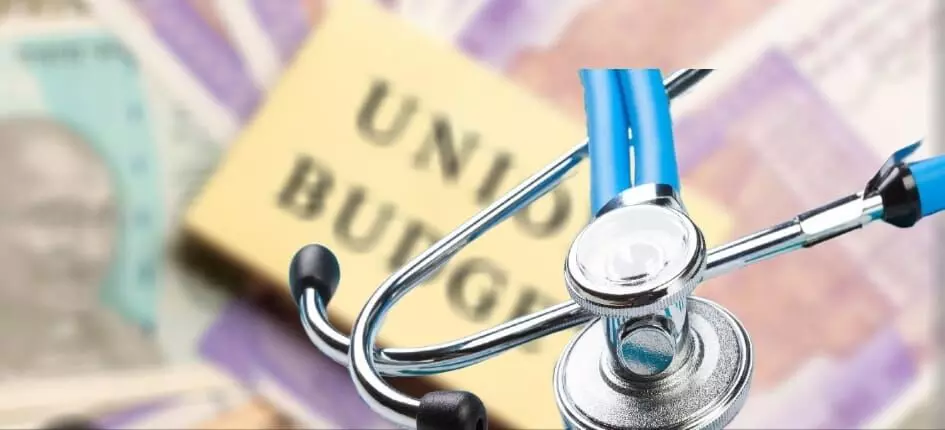Industry experts predict bigger Indian health budget in 2023
The Indian healthcare industry, valued at $86 billion in 2016, is now anticipated to increase to $367 billion by 2023 and $638 billion by 2025, according to INC42. Advancements in healthcare services, accessibility, and spending by private and public participants support the sector's growth.
By Anoushka Caroline Williams
Hyderabad: Industry leaders hope India will stay on course to becoming the "Healthcare Capital of the World" and expect the government to set aside a larger share of the budget to develop the healthcare segment. India's healthcare market is one of the fastest growing in the world, with a 22% annual compound growth rate (CAGR) over the past five years. The key factors driving the market are the population demographics, a growing middle class, income growth, increased health awareness, and a spike in lifestyle disorders.
The Indian healthcare industry, valued at $86 billion in 2016, is now anticipated to increase to $367 billion by 2023 and $638 billion by 2025, according to INC42. Advancements in healthcare services, accessibility, and spending by private and public participants support the sector's growth. "Making quality healthcare accessible and affordable continues to be the government's policy and budgetary focus in 2023. A major priority for this year is healthcare delivery to ensure last-mile access to quality yet affordable services. India has the potential to become the 'Healthcare Capital of the World' by building a robust, well-connected digital healthcare ecosystem that combines the benefits of both physical & digital delivery channels," said Mr Anurag Khosla, CEO of vHealth by Aetna.
"India's healthcare sector faced the gravest challenges during the last three years, owing to the pandemic and other factors. However, with the government's unwavering support, including a rise in budget allocations, the country was able to combat many of these hurdles. India looks forward to reforms that provide tax benefits on preventive health check-ups and healthcare skills," said Mr Chander Shekhar Sibal, Executive Vice President & Head of the Medical Division at FUJIFILM India.
"While there was a commendable increase in the budget allocated to the healthcare industry last year, we expect a further rise this year. Moreover, a stronger focus on the public healthcare sector for accessible, affordable, and quality health services will remain critical. With a large population and a diverse requirement for healthcare services, we at FUJIFILM India are gearing up to support India's healthcare needs," he added.
"In times of Covid-19, people have realised the importance of prevention/ early detection globally to tackle severe health issues, including NCDs. Screenings, personalised medicine, and genetic check-up are also on the rise as it is cost-effective and helps people understand predisposition/ risk factors which are helpful in timely action," said Mr Amol Naikawadi, Joint - Managing Director, Indus Health Plus
"A healthy India can play an important role in making India a five trillion dollar economy. Income tax exceptions for earnings from medically valuable travel will increase the focus on this category. The government should provide special tax incentives for preventative healthcare to organisations and institutions. There should be no or very little GST on healthcare services to keep costs down for healthcare providers. Medical value travel is an important growth opportunity for us and supports the government's initiative of 'Heal in India," Mr Amol concluded.